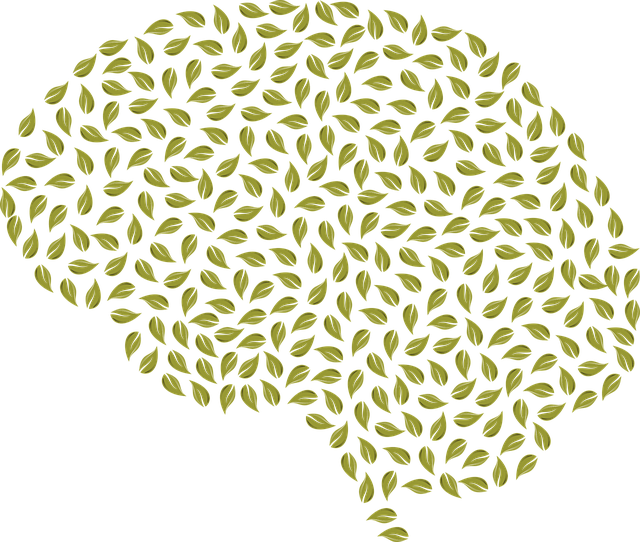Mental health advocacy for men is transforming well-being by breaking down societal barriers, challenging stereotypes, and providing tailored support. Superior Men's Issues Therapy recognizes unique challenges faced by men, offering strategies like self-awareness exercises and Mind Over Matter techniques to enhance emotional intelligence and challenge negative thought patterns. A multi-faceted approach including education, support, and practical guidance—such as workshops, online resources, therapy sessions, and journaling exercises—is vital for addressing male mental wellness issues effectively. Building community support networks through educational initiatives reduces stigma and fosters open dialogue, empowering men to manage their emotional health successfully. Case studies demonstrate significant improvements in outcomes through innovative programs tailored for men's superior therapy needs.
Mental health advocacy plays a pivotal role in addressing the unique challenges men face in therapy. This article delves into the profound impact of advocacy initiatives, focusing on understanding the specific issues plaguing male individuals seeking mental health support. We explore strategies for effective advocacy, highlighting the power of community engagement and education. Additionally, case studies showcase successful programs and their outcomes, offering valuable insights into improving access to superior men’s issues therapy.
- Understanding Mental Health Advocacy and its Impact on Men
- Identifying the Unique Challenges Facing Male Individuals in Therapy
- Strategies for Effective Mental Health Advocacy Initiatives
- Building Support Networks: Community Engagement and Education
- Case Studies: Successful Advocacy Programs and Their Outcomes
Understanding Mental Health Advocacy and its Impact on Men

Mental health advocacy plays a pivotal role in addressing and improving the well-being of men, who often face unique challenges that are distinct from women’s experiences. Historically, males have been less inclined to seek support for their mental health issues due to societal norms promoting stoicism and self-reliance. This has led to a significant gender gap in access to therapy, with many men enduring silent struggles. However, the landscape is shifting as awareness campaigns and advocacy initiatives gain traction.
Advocacy groups are instrumental in challenging stereotypes and encouraging open conversations about mental health among men. They advocate for better access to specialized services tailored to male-specific issues, such as superior men’s issues therapy. This includes implementing community outreach programs that provide education, risk assessments for mental health professionals, and support networks to foster emotional healing processes. By addressing these aspects, advocates aim to reduce the stigma surrounding male vulnerability and ensure that men receive the necessary care and understanding they deserve.
Identifying the Unique Challenges Facing Male Individuals in Therapy

In today’s world, mental health advocacy is crucial, especially when addressing the unique challenges faced by male individuals in therapy. Historically, men have often been socialized to suppress emotions and display strength, which can create significant barriers when seeking support. This cultural expectation often leads to underreporting of mental health issues among men, making it essential to understand and cater to their specific needs. Superior men’s issues therapy recognizes these challenges and aims to create a safe space for self-reflection and healing.
One effective approach is through self-awareness exercises that encourage emotional expression and understanding. By fostering emotional intelligence, therapy sessions can help males process and manage their feelings healthily. Additionally, incorporating Mind Over Matter principles can empower individuals to challenge negative thought patterns and develop resilience. These strategies collectively contribute to a more inclusive and beneficial therapeutic environment tailored to the distinct requirements of male clients.
Strategies for Effective Mental Health Advocacy Initiatives

Mental health advocacy initiatives are powerful tools for raising awareness and promoting understanding of mental wellness issues among men. To be effective, these initiatives should employ a multi-faceted approach that combines education, support, and practical guidance. One key strategy is to provide Coping Skills Development tailored to male experiences and needs. This can involve workshops, online resources, or peer support groups that teach mindfulness techniques, stress management strategies, and healthy coping mechanisms.
Additionally, encouraging Mood Management through structured practices like therapy sessions or Mental Wellness Journaling Exercises has proven beneficial. Journaling can help men process emotions, track moods, and identify triggers, fostering a deeper understanding of their mental health. These initiatives should be guided by professional therapists specializing in men’s issues to ensure safety and efficacy. By combining these strategies, advocacy groups can effectively reach out to men, offering them the Superior Mens Issues Therapy they need to navigate and improve their mental wellness.
Building Support Networks: Community Engagement and Education

Building support networks is a cornerstone of mental health advocacy, especially when tailored to address superior men’s issues therapy needs. Engaging communities through educational initiatives fosters an environment where individuals can openly discuss their struggles and seek help without stigma. This approach leverages Mind Over Matter principles to empower men, helping them navigate stress, anxiety, and other common mental health challenges. By educating community members about burnout prevention and confidence-boosting strategies, these programs create a safety net that encourages proactive mental wellness.
Community engagement goes beyond awareness; it involves active participation in support groups, workshops, and peer mentorship programs. These activities not only provide valuable coping mechanisms but also foster a sense of belonging, which is crucial for overcoming feelings of isolation often associated with mental health struggles. Through such collaborative efforts, individuals can build resilience, enhance their emotional intelligence, and take significant steps towards improving their overall mental well-being.
Case Studies: Successful Advocacy Programs and Their Outcomes

Mental health advocacy initiatives have seen remarkable success through various programs focused on raising awareness and promoting understanding. Case studies highlight innovative approaches that have significantly improved outcomes for individuals struggling with mental health issues. One such program, tailored specifically for men’s superior therapy needs, has demonstrated exceptional results in fostering open dialogue and reducing stigma. By employing effective burnout prevention strategies for healthcare providers, this initiative ensures a supportive environment where men can access the necessary tools for emotional regulation.
The integration of conflict resolution techniques within these advocacy programs has been pivotal in addressing the unique challenges faced by individuals seeking therapy. Through structured interventions, participants have learned to navigate and resolve internal conflicts, leading to improved mental well-being. These successful advocacy models not only enhance access to quality care but also equip individuals with valuable skills for managing their emotional health, fostering a sense of empowerment and resilience.
Mental health advocacy plays a pivotal role in addressing the unique challenges men face in therapy, particularly regarding issues often overlooked in traditional healthcare settings. By implementing effective initiatives that focus on community engagement and education, we can foster supportive environments for male individuals to seek help without stigma. The case studies presented demonstrate the profound impact of tailored advocacy programs, highlighting their potential to revolutionize Superior Men’s Issues Therapy. It is imperative that we continue to support and expand these efforts to ensure better mental well-being outcomes for men across diverse communities.









